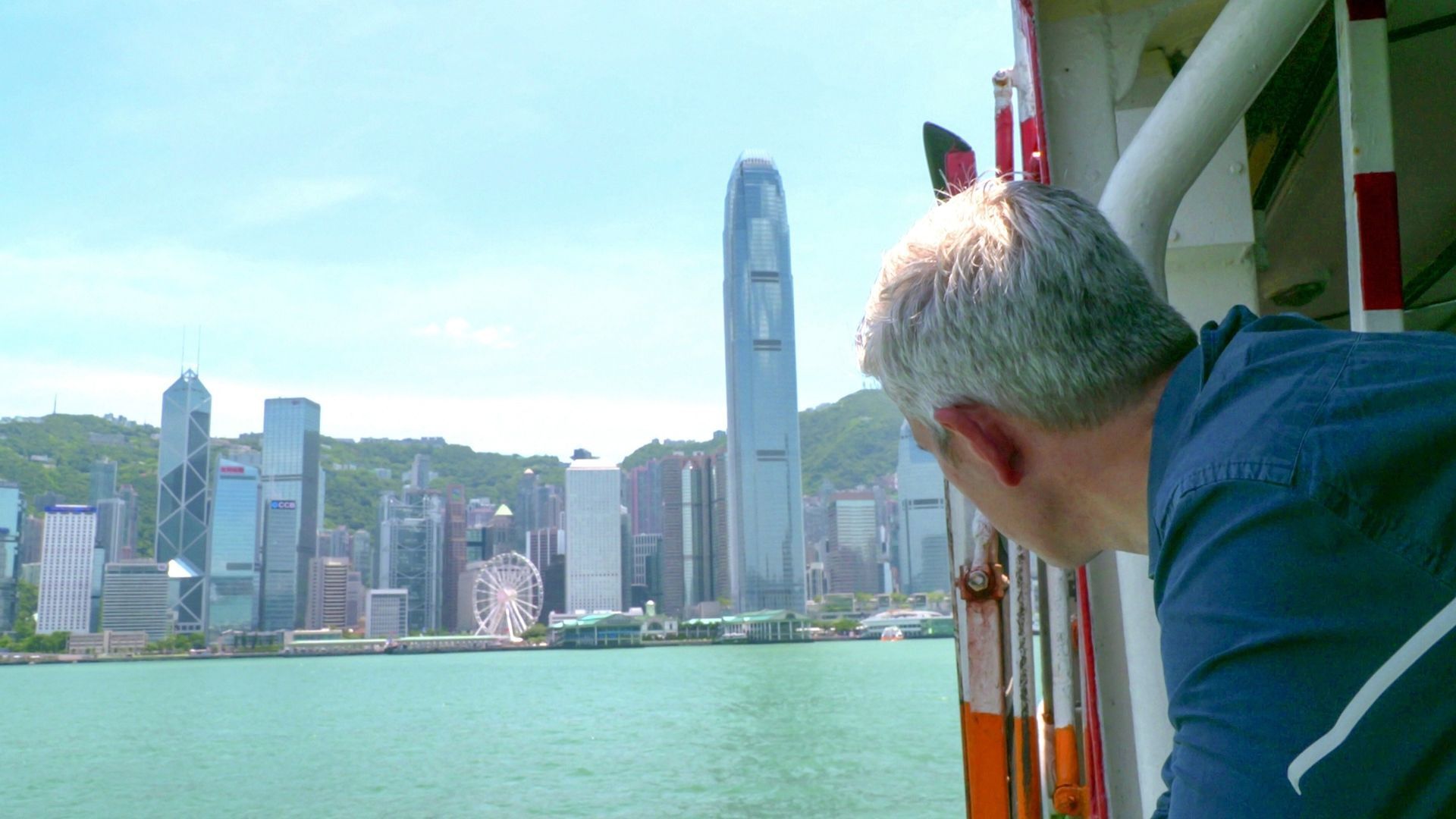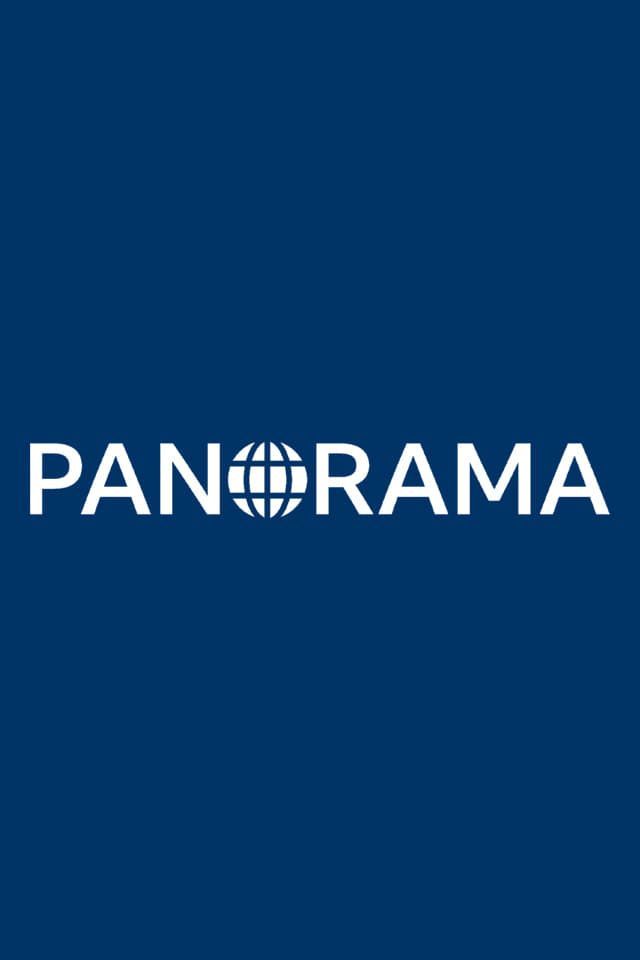

Panorama
Season 1991
Long-running factual programme reporting on all aspects of life in Britain.
Where to Watch Season 1991
43 Episodes
- Project BabylonE2
Project BabylonThe full story of Saddam Hussein 's supergun is revealed. It began as one scientist's dream and ended in murder, illegal arms shipments, and serious embarrassment for the government. With previously secret documents and interviews with some of those most closely involved, Panorama shows how the Iraqis ordered three different guns, how British companies helped build the parts, and how confusion and rivalry in Whitehall nearly led to potentially lethal technology falling into Saddam's hands. - 25/02/1991E7
25/02/1991While the world has been distracted by the Gulf crisis, momentous political events have been taking place in the Soviet Union, which put a question mark against President Gorbachev's entire programme of reform. Gavin Hewitt reports on how the struggle for independence in the republics combined with mounting economic chaos to provoke a formidable conservative backlash. - 04/03/1991E8
04/03/1991As foreign ministers gather in Brussels to discuss the next steps towards political union, Panorama examines the impact of the Gulf crisis on Europe. There's been bitter criticism in Britain of some European countries for their lack of support for the war effort, while Europeans have said that Britain is more interested in its 'special relationship' with the USA than in closer co-operation with the Continent. Has the Gulf crisis proved that political union is simply impossible - or shown that it's needed now more than ever? - 18/03/1991E10
18/03/1991On the eve of the Budget, Panorama asks whether the recession is doing lasting damage to Britain's industrial fabric. As unemployment soars to two million, it is already clear that the latest recession is deeper than expected. But now that it has spread north from services to Britain's industrial heartland, industrialists are asking whether manufacturing industry can recover from its second body blow in a decade. - Race Hate UKE12
Race Hate UKIn 1991 Panorama investigated the rise of racist violence in the UK and the role of the openly racist British National Party. Formed after a split with the National Front in the 1980s, the British National Party continued to follow an openly racist agenda advocating involuntary repatriation of non-whites. The programme found their policies and their presence inflaming racial tensions in the east end of London. - The Cancer LotteryE14
The Cancer LotteryEvery cancer patient wants the best treatment, but finding it may be a matter of chance. Some doctors believe that thousands of cancer patients are dying unnecessarily in Britain every year. Stephen Bradshaw presents disquieting new evidence on the treatment of a disease that one in three of us will develop and one in four will die from. - Beyond the Poll TaxE15
Beyond the Poll TaxIn the week when millions vote in local elections and the government unveils its replacement for the poll tax, the spotlight is on local government. What should it do and how should we pay for it? From Nottingham, David Dimbleby leads a debate with politicians, councillors, experts and ordinary citizens. - Cold Warrior - the Story of James Jesus AngletonE16
Cold Warrior - the Story of James Jesus AngletonTonight's special edition traces the extraordinary career of James Jesus Angleton, the most famous spycatcher of them all. Angleton was the CIA's guru of counter-intelligence through most of the cold war, but his increasing paranoia and the obsessive mole-hunt he launched paralysed the west's spying operations against the KGB and led at least one innocent man to his death. - Scuttling British ShipbuildersE17
Scuttling British ShipbuildersTwo years ago England's last big merchant shipbuilding yard was closed for good. But there were and remain shipbuilders who wanted to buy and run the Sunderland shipyards without subsidy. Fred Emery reports on the political deal between Whitehall and Brussels which sacrificed Sunderland in the Government's rush to privatise what was left of British shipbuilding. - Escape from TiananmenE18
Escape from TiananmenTwo years after the massacre in Tiananmen Square, Panorama reveals the story of Yellow Bird - the underground operation that spirited many pro-democracy activists out of China under the noses of the communist authorities. In the programme, much of which was made secretly inside China, Gavin Hewitt also talks to the students who stayed behind. - Rivals for RussiaE19
Rivals for RussiaDavid Dimbleby presents a special programme from Moscow in the week of the first free election since the Revolution. Will Boris Yeltsin be voted Russian president - and if he is, where does that leave Mikhail Gorbachev ? The BBC's Moscow correspondent is on the campaign trail with the candidates, while David Dimbleby debates the implications of the election with rival political leaders. - Making a Killing?E21
Making a Killing?In the aftermath of the Gulf War, western leaders say it is time for the world's major weapons producers to cut back on arms sales. But is the arms trade now beyond our control? Jane Corbin reports from Chile and Egypt on how major British defence companies are selling weapons technology which could make attempts at arms control worthless. - Out of Sight, Out of MindE22
Out of Sight, Out of MindThe Government is committed to closing down old asylums and caring for the mentally ill in the community.-But as thousands of beds are lost for ever, more and more of the mentally ill find themselves out on the street, and many end up in prison. Polly Toynbee reports on the plight of the mentally ill, and asks whether closing mental hospitals so quickly leaves them with nowhere to go. - Labour PainsE23
Labour PainsLabour now has a good chance of forming Britain's next government. But post-war Labour prime ministers have faced the same persistent problems: sterling crises, pressures on spending, strained relations with the ' unions, and internal party 4 strife. Michael Crick asks ? whether, if history repeats itself, Neil Kinnock could g tackle these problems any more effectively than his predecessors. - The Battle for Britain's DefencesE24
The Battle for Britain's DefencesAs Britain's armed forces wait to hear who's going to be on the receiving end of the government's military cutbacks, David Dimbleby chairs a special debate on the future of our defences. Is a leaner, meaner force the right answer or did the Gulf War prove that it could be dangerous to give up the traditional strengths of our army, navy and airforce? - Lethal ForceE25
Lethal ForceJohn Ware investigates a chain of recent killings by British soldiers in Northern Ireland. In some instances, new forensic documents or new eye-witnesses suggest that soldiers lied about what happened, or tampered with the evidence. In another incident, one of the security forces' own informers was shot dead. 'Shoot to kill' may not be official government policy; Panorama examines if it's developed into a practice. - ICI: Hanson's ChoiceE26
ICI: Hanson's ChoiceA state of war exists between ICI, Britain's top chemical company, and Hanson pic, over the prospect of Britain's ; largest ever takeover. It was sparked by a city raid that i made Hanson pic ICI's second ' largest shareholder, and was followed by a proposed merger . from Hanson chairmen Lords Hanson and White. ICI coldly refused. Now, amid workforce anxieties and excitement in the financial world, Fred Emery reports on the key issue: should ICI simply be sold to the highest bidder or are there longer-term national - interests to be served in safeguarding a British company that claims to be j world class? - Iraq: Saddam the SurvivorE28
Iraq: Saddam the SurvivorDid Saddam really lose the Gulf War? In the second of three special Panorama documentaries about the war and its aftermath, the BBC's award-winning Foreign Affairs editor John Simpson reports from Iraq and its neighbours on how the dictator survived a crushing military defeat and the uprisings that followed it, and talks to the Iraqi dissidents who still hope to topple him. - Goodbye USSRE32
Goodbye USSRAs the Soviet Union breaks up, reporter Gavin Hewitt explores the death of a superpower. Will its end be bloody or peaceful? The iron grip of the Communist Party and the Kremlin have now been loosened. In the new freedom can the democrats prevent the economy from descending even further into chaos? And will the desire for revenge against communists, and renewed ethnic feuding cause further bloodshed? - 21/10/1991E37
21/10/1991This summer, hopes for a political settlement in Northern Ireland flickered then died. But Secretary of State for Northern Ireland Peter Brooke refuses to give up the search for peace. John Ware assesses his chances and reports on why, against all odds, this most tenacious Northern Ireland Secretary remains optimistic. - 04/11/1991E39
04/11/1991Last month, several British cities were blighted by rioting, and politicians and church leaders cast around for explanations for the civil unrest. Jane Corbin looks for the causes of inner-city riots and asks what can be done to prevent further unrest; whether the riots represent a failure of the Government's policies in deprived areas; and whether there is an "urban underclass" trapped in a vicious circle of poverty. - The Bank That Didn't Add UpE40
The Bank That Didn't Add UpWhen last July the Bank of England co-ordinated action to close down BCCI, one of the world's largest international banks, it ended a fraud but started a furore. For no sooner had the bank acted than the questions began. When did the Bank of England suspect a fraud? Should the auditors have sounded the alarm earlier? And should the closedown have happened sooner? As depositors wait to find out how much they might retrieve, Fred Emery reports on whether the largest banking fraud in history could have been avoided. - Class WarsE41
Class WarsThe Government has renewed its onslaught on "trendy educationalists", claiming they have spread a mania for equality through Britain's schools and betrayed generations of children. But many teachers fear that the government is trying to abandon methods which have inspired thousands of children to believe that education is worthwhile. As the government plans new laws to change the way teachers are trained, Panorama reports on the war for the hearts and minds of Britain's schoolchildren. - 02/12/1991E42
02/12/1991Has the Thatcherite housing agenda led to a housing crisis, with family homes being repossessed because of over-extended mortgages and too little money going into public housing? In the month when the housing charity Shelter is 25 years old, Nisha Pillai examines the housing crisis in Britain.